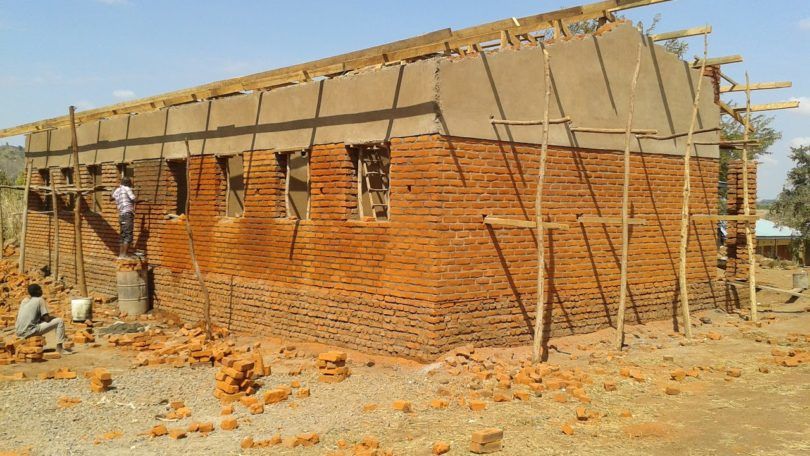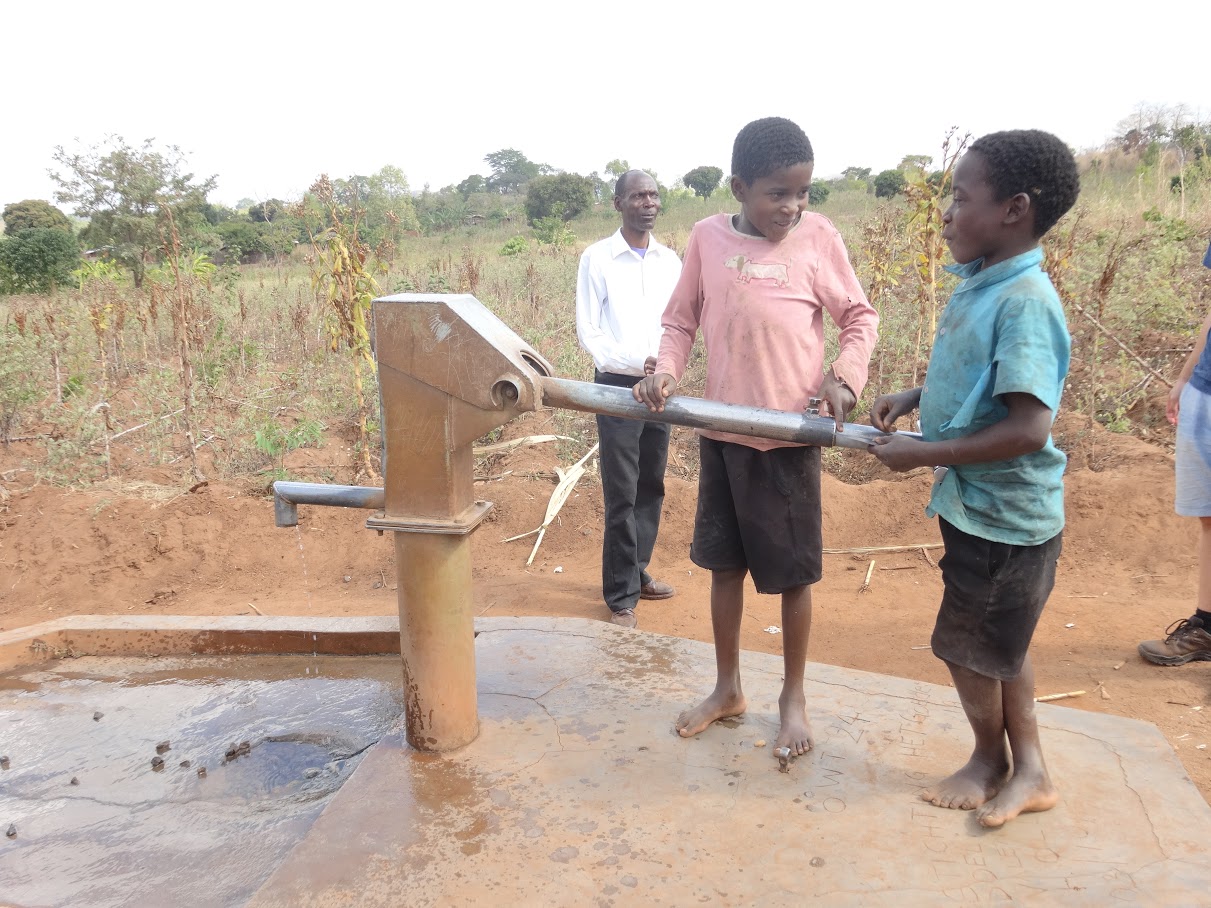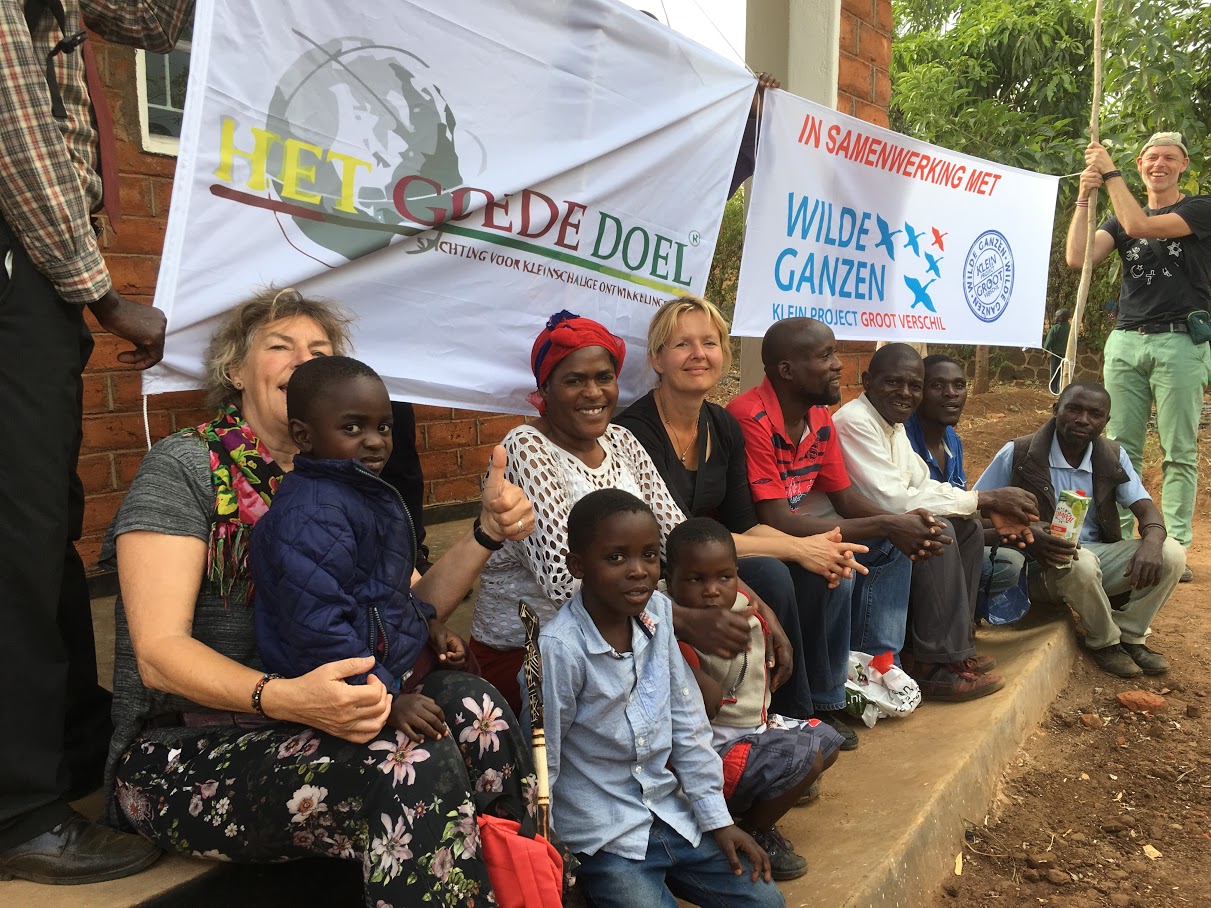‘The media misrepresent developing countries’
-
 A school under construction in the village Mkanda Farm in Malawi. Photo: Mirjam Vossen
A school under construction in the village Mkanda Farm in Malawi. Photo: Mirjam Vossen
Newspapers and magazines, but also development aid agencies are blind to the progress of developing countries. They know that poverty is on the decline, but fail to disseminate this knowledge. This is the conclusion of journalist and media researcher Mirjam Vossen in her PhD thesis Framing Global Poverty, which she defended yesterday.
For the past 25 years, Vossen has been a regular visitor to Malawi, a country bordering Tanzania and Mozambique. Her first visit took place in the context of her internship for the Tilburg School of Journalism. She later returned to Malawi for her graduation project at Utrecht University (where she studied International Development Studies). There were more visits, in between and later on. ‘It’s a gorgeous country, and more importantly, I’ve made some good friends there.’
Discrepancy
Vossen is involved in small-scale development projects in Malawi and organises trips to the East African country. As a journalist she writes about Malawi for newspapers and magazines on development aid. ‘Over time I noticed a discrepancy between Malawi’s development and the growing cynicism towards development aid in the Netherlands.’

75% of journalists who write about developing countries are aware that poverty is on the decline
One thing is clear: Malawi is on the rise. Poverty is declining thanks to local initiative, child mortality is waning, and fewer people die of AIDS. The same is true of other developing countries. Most journalists know about these facts: Vossen’s research reveals that 75% of journalists who write about developing countries are aware that poverty is on the decline – as are development aid organisations. And yet: they rarely communicate this fact to the outside world.
Local initiative
Vossen analysed newspaper articles about developing countries, as well as advertisements and campaigns by development aid organisations. Not only in the Netherlands, but also in Flanders and in England. She also surveyed 54 journalists.
It’s true that the media in the Netherlands, Flanders and England no longer overwhelm the public with tear-jerking images of children with swollen hunger bellies. But they still devote remarkably little attention to local initiatives in developing countries. Development aid agencies in particular spread images of local people as victims, dependent on external help. ‘They’ll never make it on their own. Only Western countries can offer a solution’, is the hidden message.
‘I see few stories of how local people work on solutions to reduce corruption in their own country.’
Vossen compared a number of Dutch newspapers. Her analysis shows that it does matter which paper you read. Readers of De Telegraaf are more often fed images of people in developing countries as victims than readers of De Volkskrant. NRC readers are more likely to read about corrupt leaders in developing countries. ‘Another cliché’, says Vossen. ‘I rarely see stories of how local people work on solutions to reduce corruption in their own country.’ Vossen did not investigate the effect of such messages on readers. ‘But I can imagine that people who only hear about corruption are less likely to donate money; they may be afraid that their money will end up in the wrong hands.’
Bad news
The question remains why journalists create such a one-sided representation of developing countries while being fully aware of how inaccurate this image is. The journalists interviewed by Vossen indicated that they were mostly led by news criteria. To qualify as news, an event should be sudden and impactful, like a conflict. Positive developments usually don’t make it to the news because they tend to be slow.

Vossen argues that the news criteria have to be adjusted. ‘News values are not set in stone; they are characteristics that people assign to events. As long as news values such as drama, conflict and bad news define the journalistic agenda, the media will continue to massively misrepresent developing countries.’
Vossen herself tries to set an example with her work for World’s Best News, a movement drawing the public’s attention to progress in developing countries.
Mirjam Vossen defends her PhD thesis today at 10.30 a.m. in the Aula



